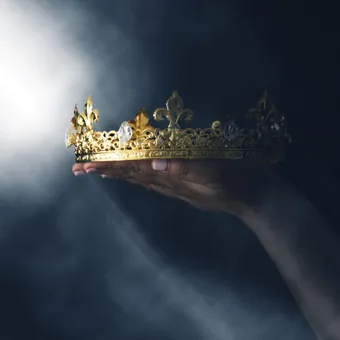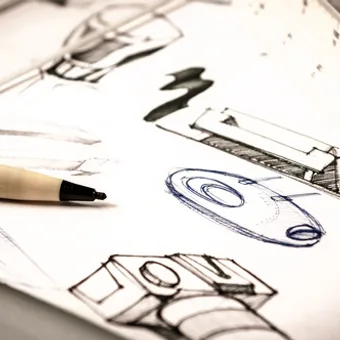
Fashion & Luxury Brands
Whatever size your business, our IP attorneys can help guide you through the challenges, opportunities and decisions that come your way.
IP protection for fashion & luxury apparel brands #
In today's marketplace, crafting on-trend, ethically produced, and environmentally friendly products presents a unique set of challenges for designers, suppliers, and retailers. The digital age adds another layer of complexity, making early registration of trade marks and designs crucial to safeguard your creativity, brand goodwill, and value.
The need to design, manufacture and distribute products that are on-trend (as well as ethically produced and environmentally friendly) can create challenges for designers, suppliers and retailers.
Today, when everything gets shared online, registering trade marks and designs early is vital to protect your creativity, goodwill and brand value. If your brand or product is copied, litigation is far easier when you have registered rights to rely on. Consumers are more conscientious than ever before, with sourcing, manufacturing, packaging and transportation all contributing to how sustainable your brand is. Many aspects of your production process could benefit from IP protection.

Our fashion & luxury expertise #
Your products and brand represent the investment of your time, money and effort. You should therefore be able to protect yourself from competitors who might try to piggy-back on your success and be able to obtain the maximum possible return on the investment you’ve made — either through obtaining repeat sales, licensing or franchising, or ultimately selling the business.
Our fashion & luxury brands IP team #
Insights #
FAQs #
What is copyright? #
Copyright is an important component of intellectual property law that grants exclusive rights to the creators of original works of authorship. These works encompass a wide range of media, including such items as literary pieces, dramatic compositions, musical arrangements and artistic creations. This expansive scope extends to various forms of expression, such as novels, films, songs, computer software, and even architectural designs. The owner of a copyright enjoys the exclusive authority to reproduce, distribute, perform, display, and license their work, safeguarding their creative endeavours and fostering a thriving ecosystem of innovation and artistic expression.
How is copyright different from patents or trade marks? #
Copyright, patents, and trade marks are all different types of intellectual property, but they protect different things. Copyright protects original works of authorship, literary, artistic, and musical creations. Patents provide legal monopoly rights for inventions or discoveries, ensuring exclusive rights for a specified period. Trade marks play a vital role in safeguarding brand names, logos, and other unique identifiers used in commercial activities, distinguishing the products or services of their owners from those of competitors.
How can I copyright my work? #
In most jurisdictions, an original work is automatically protected by copyright from the moment it is created and fixed in a tangible form that is perceptible either directly or with the aid of a machine or device. However, if you wish to bring a lawsuit for infringement of a U.S. work, you will need to have registered your work with the U.S. Copyright Office. It is also possible to register copyright in other countries, such as China and India.
What is fair use? #
Fair use is a legal doctrine that promotes freedom of expression by permitting the unlicensed use of copyright-protected works in certain circumstances. These circumstances may include criticism, comment, news reporting, teaching, scholarship, and research.
What is a copyright notice and how does it affect my copyright? #
A copyright notice is a legally recognised statement that is placed on copies or phonorecords of a work to inform the world about the ownership of copyright. Though not mandatory by law, it serves as a powerful tool to discourage infringement and can potentially impact the amount of damages awarded in an infringement lawsuit. By prominently displaying a copyright notice, creators can assert their rights and establish a clear indication of their ownership, thereby safeguarding their intellectual property from unauthorised use or reproduction.
How long does copyright protection last? #
The length of copyright protection varies from country to country; in the UK, copyright is based on when the work was created and the nature of the authorship. Generally, for works created after January 1, 1978, copyright protection lasts for the lifetime of the author plus an additional 70 years.
Speak with our fashion & luxury IP experts
Ensure your designs and branding are fully protected in the competitive world of fashion and luxury. We’ll help you safeguard your creative assets.











































